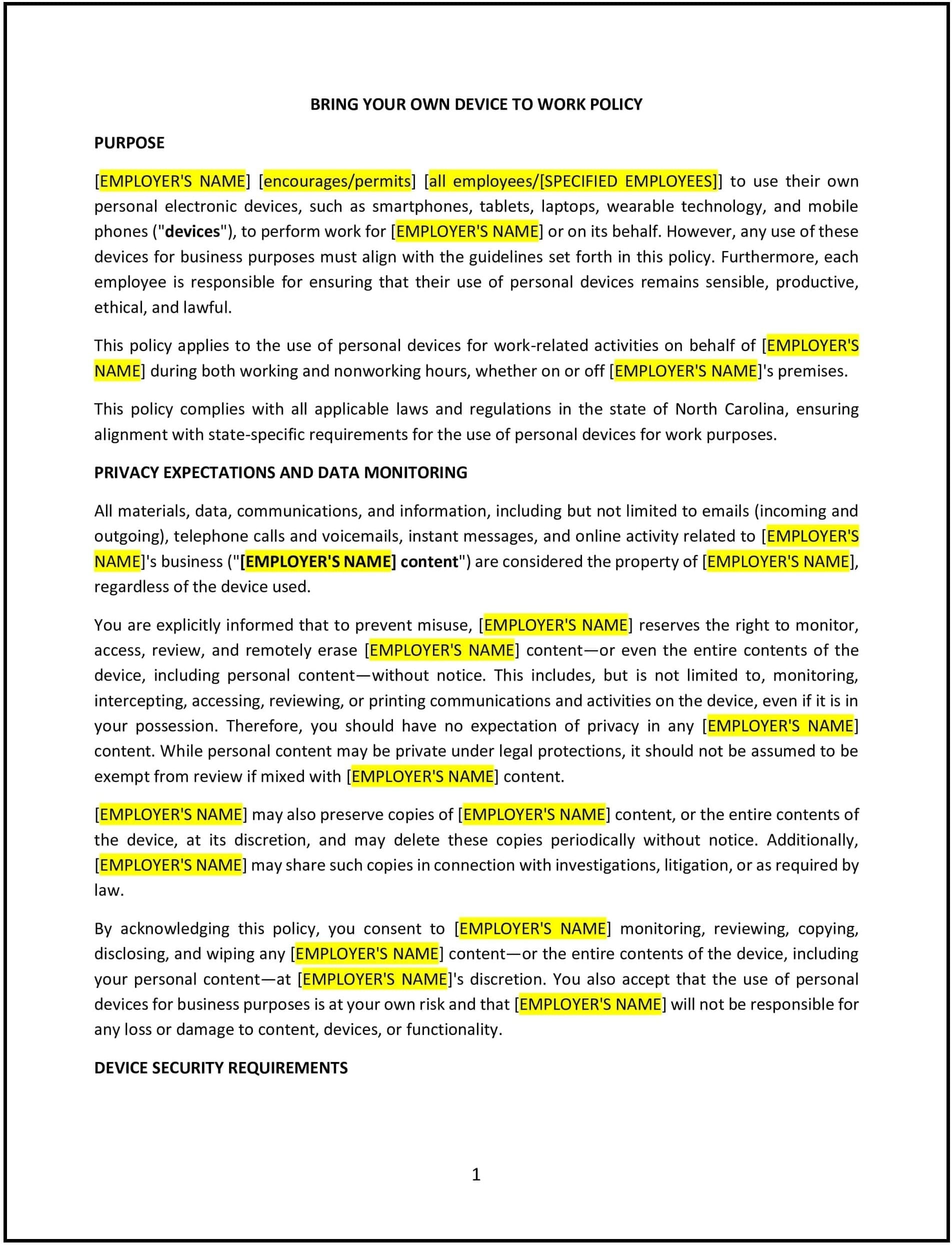Bring your own device to work policy (North Carolina): Free template
Got contracts to review? While you're here for policies, let Cobrief make contract review effortless—start your free review now.

Customize this template for free
Bring your own device to work policy (North Carolina)
A bring your own device (BYOD) policy helps North Carolina businesses establish guidelines for employees using personal devices, such as smartphones, tablets, and laptops, for work-related activities. The policy outlines the security, privacy, and usage expectations for devices, ensuring that the use of personal devices does not compromise the company’s data, operations, or network.
By adopting this policy, businesses can offer flexibility for employees while protecting company information and maintaining control over device security.
How to use this bring your own device to work policy (North Carolina)
- Set device eligibility: Specify which devices are eligible for use in the workplace, including personal smartphones, tablets, laptops, and other portable devices.
- Define security requirements: Establish guidelines for securing personal devices, such as using password protection, encryption, or company-approved security software to protect company data and networks.
- Specify acceptable use: Outline the rules for using personal devices for work purposes, including limits on accessing company systems, social media, or personal applications during work hours.
- Provide guidance on data privacy: Clarify how business data should be handled, stored, and transferred on personal devices to ensure that sensitive information is protected.
- Reflect North Carolina-specific considerations: Ensure the policy complies with North Carolina’s privacy and data protection laws, particularly regarding personal information and confidential data.
Benefits of using this bring your own device to work policy (North Carolina)
This policy provides several benefits for North Carolina businesses:
- Increases employee flexibility: BYOD allows employees to use their personal devices for work, offering convenience and improving work-life balance.
- Reduces IT costs: Businesses can reduce hardware costs by allowing employees to use their own devices, shifting the burden of device procurement to employees.
- Enhances productivity: Employees are more familiar with their personal devices, which can lead to improved efficiency and job satisfaction.
- Improves employee satisfaction: Offering BYOD options can make employees feel more empowered and flexible, contributing to higher morale.
- Protects company data: A well-defined BYOD policy helps businesses manage security and privacy concerns, ensuring that personal devices are used safely without compromising company information.
Tips for using this bring your own device to work policy (North Carolina)
- Communicate the policy clearly: Ensure employees are aware of the BYOD policy and understand the rules for using their personal devices at work.
- Provide training: Train employees on how to secure their personal devices, including password protection, encryption, and other safety measures.
- Monitor device usage: Regularly monitor the use of personal devices to ensure they meet security requirements and are used appropriately for work-related activities.
- Review the policy regularly: The policy should be reviewed periodically to ensure it remains aligned with North Carolina’s data privacy laws, technological advancements, and company security needs.